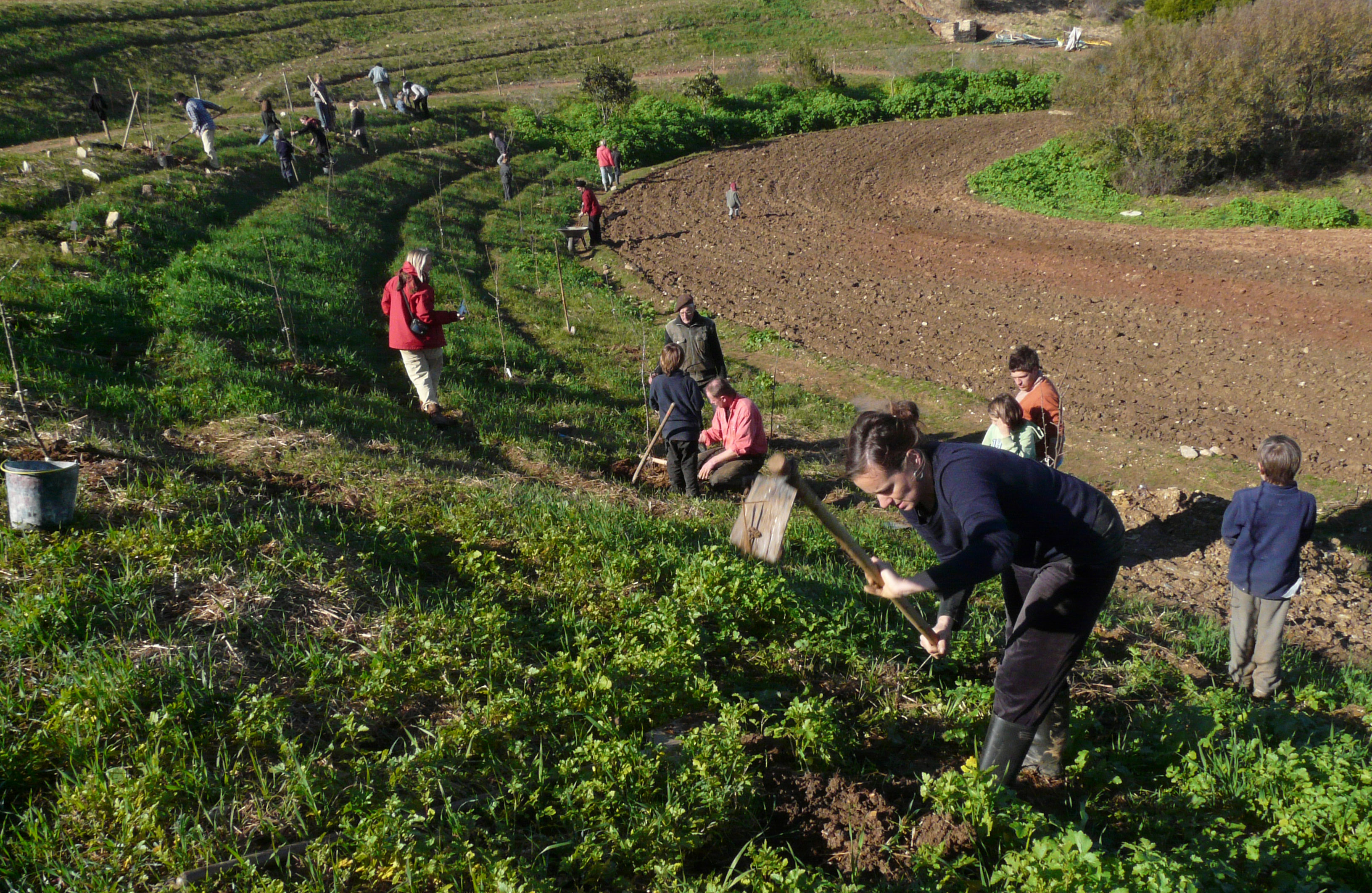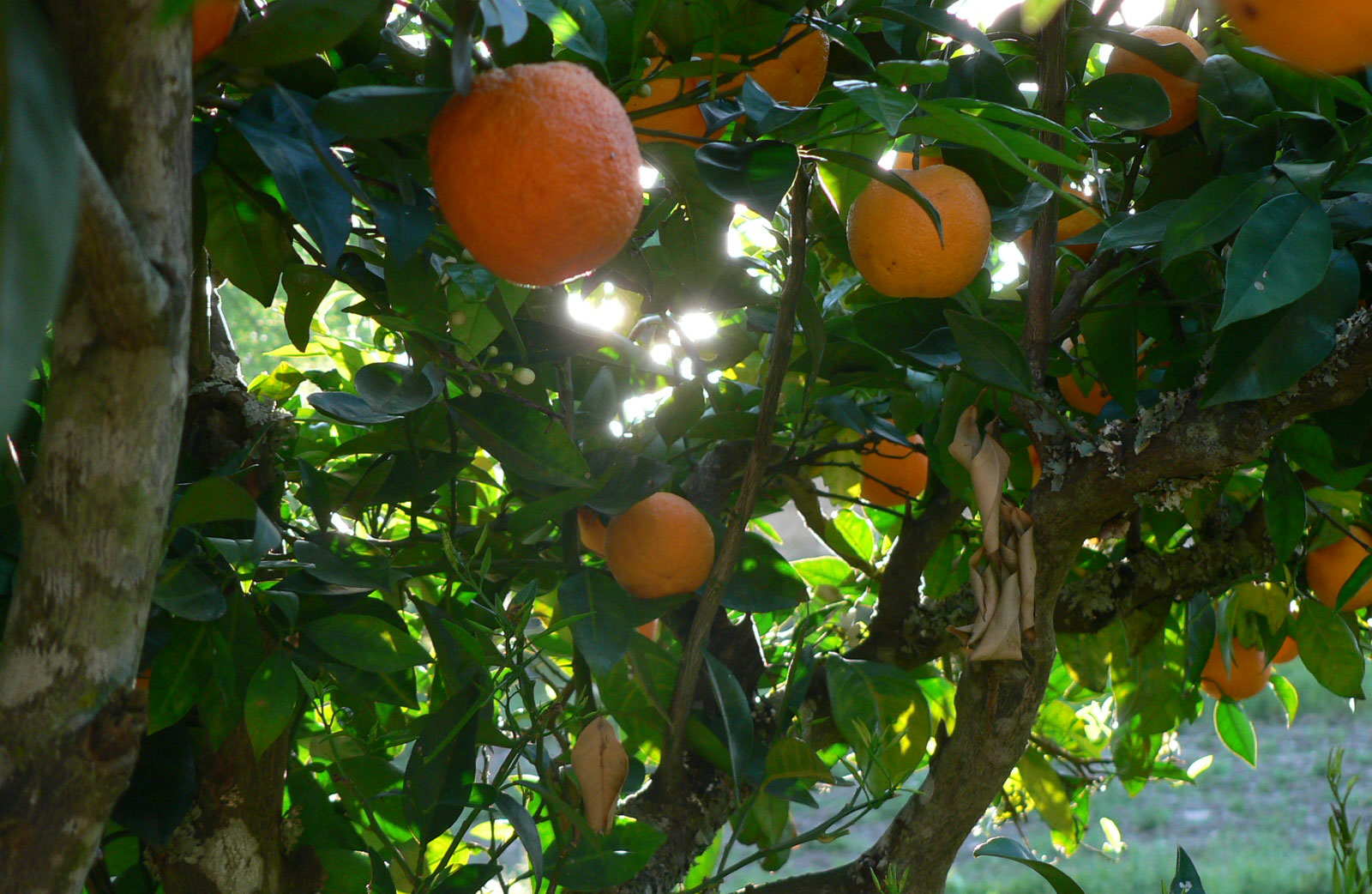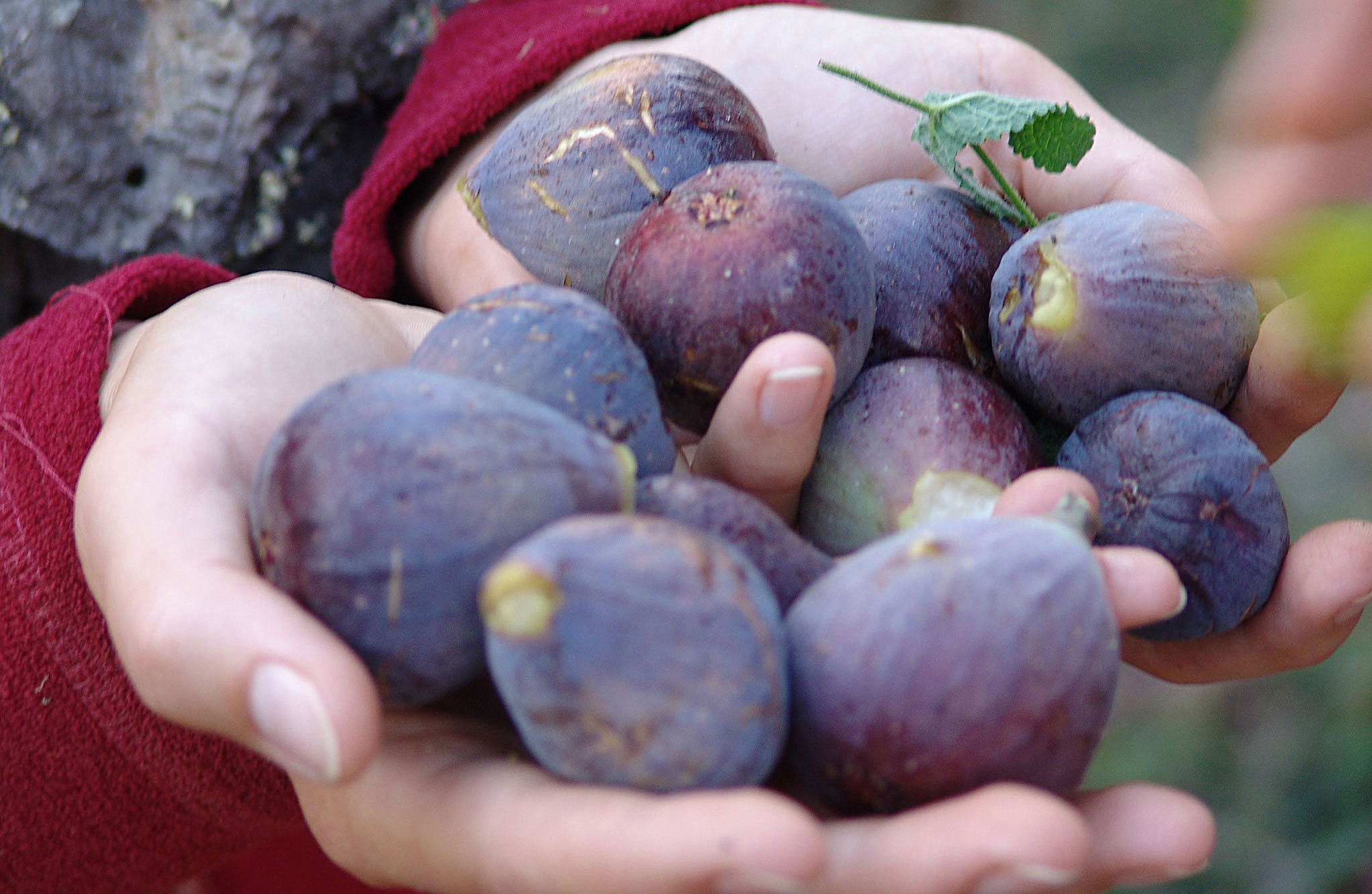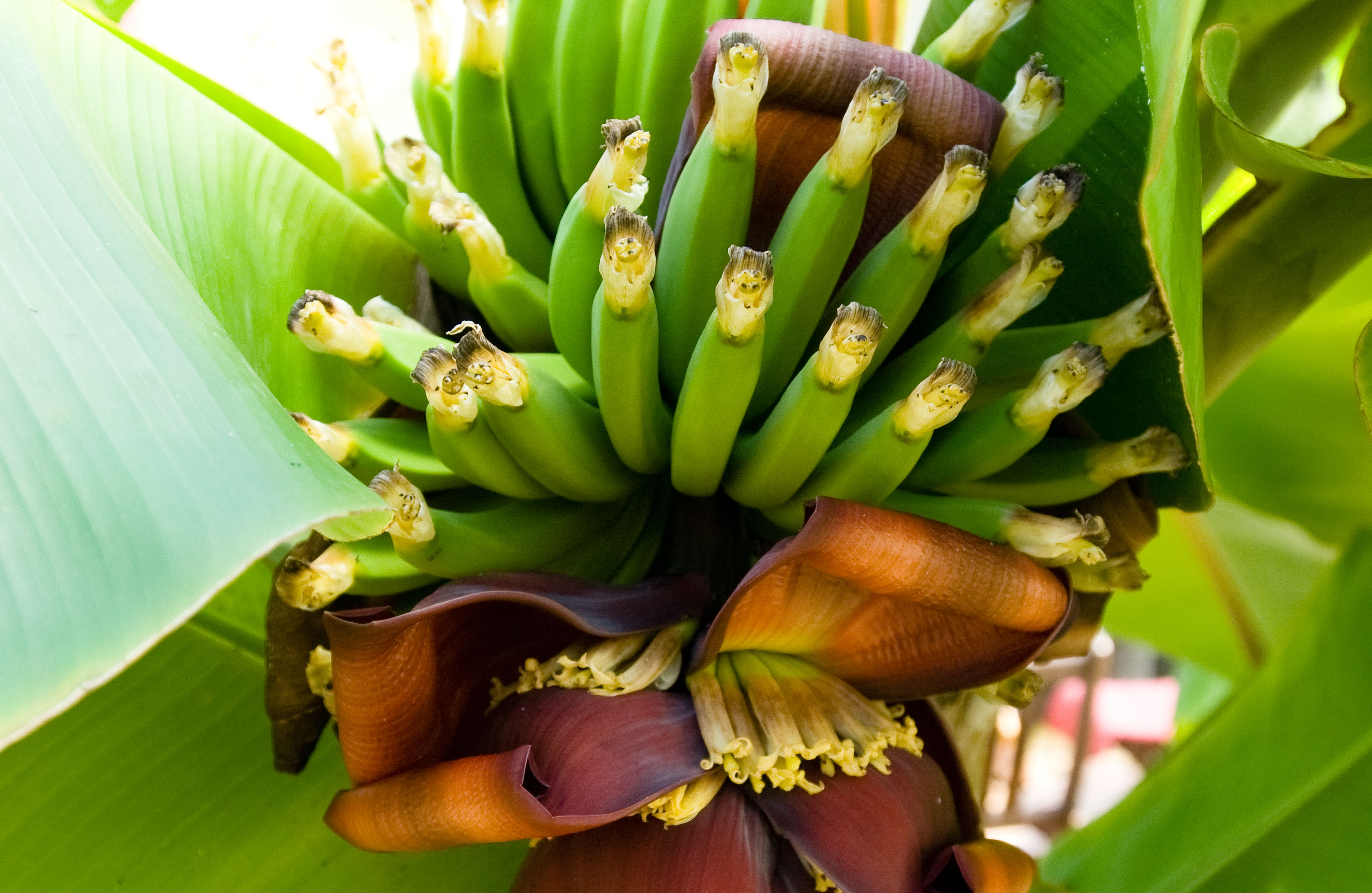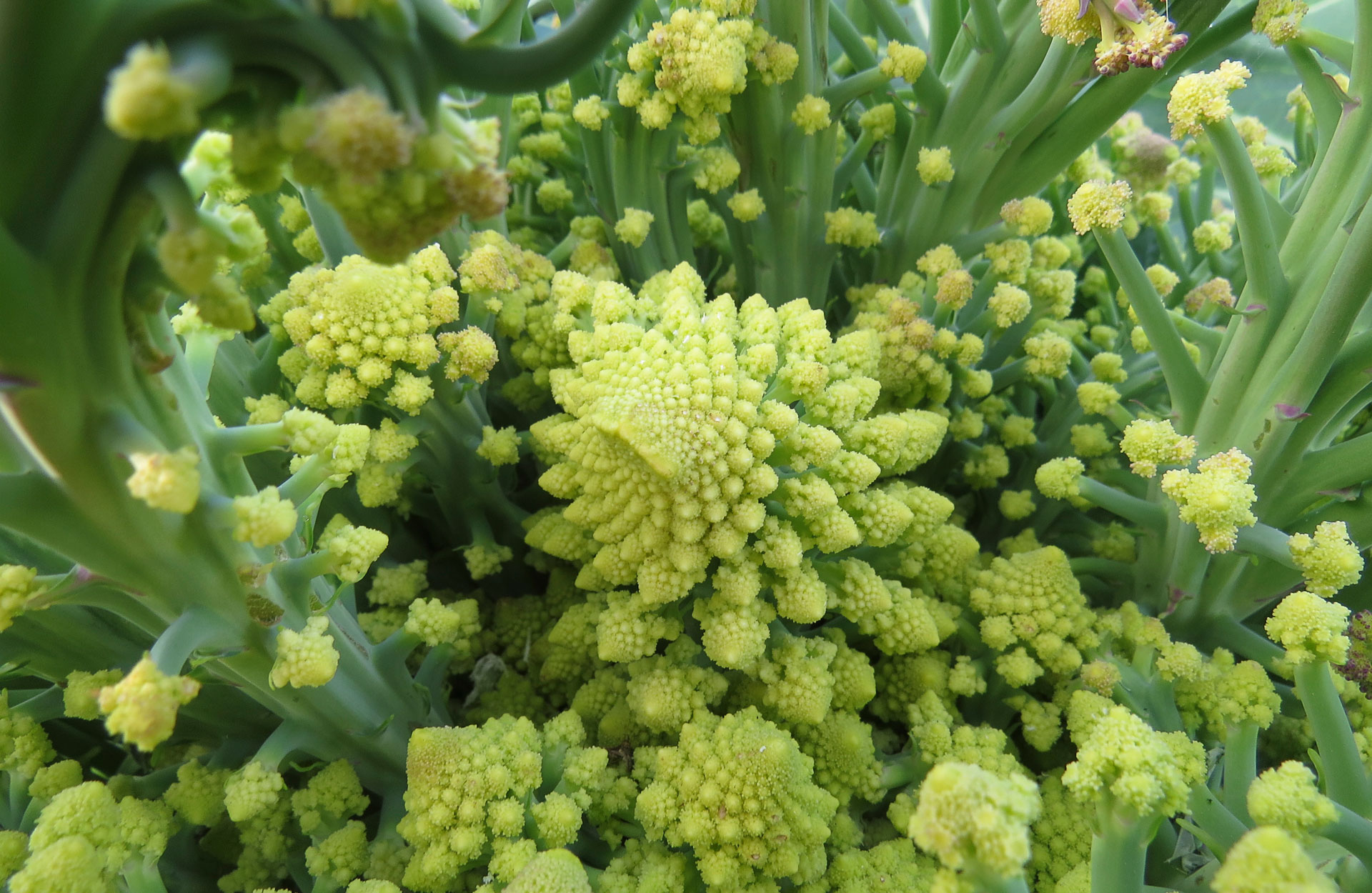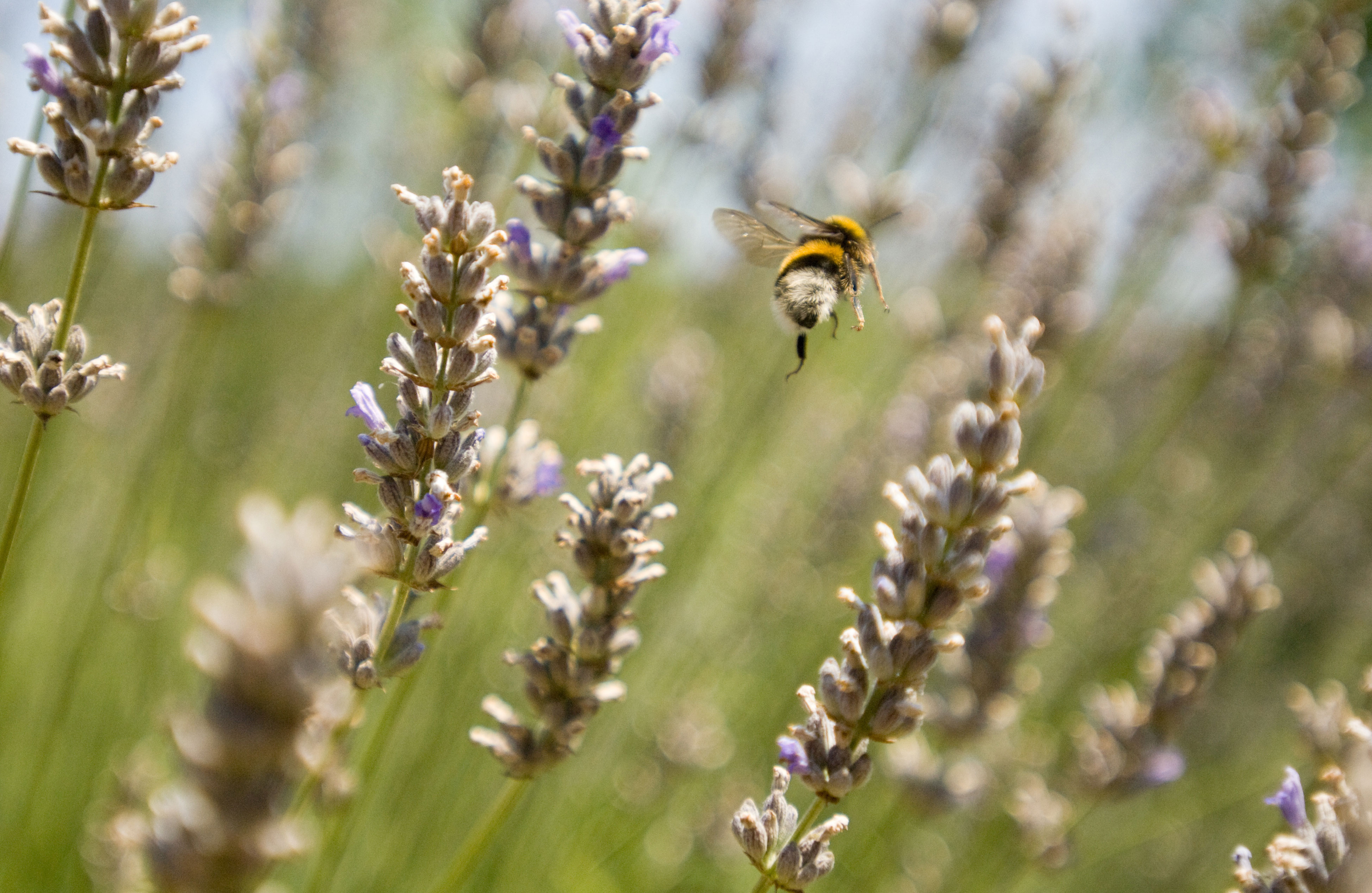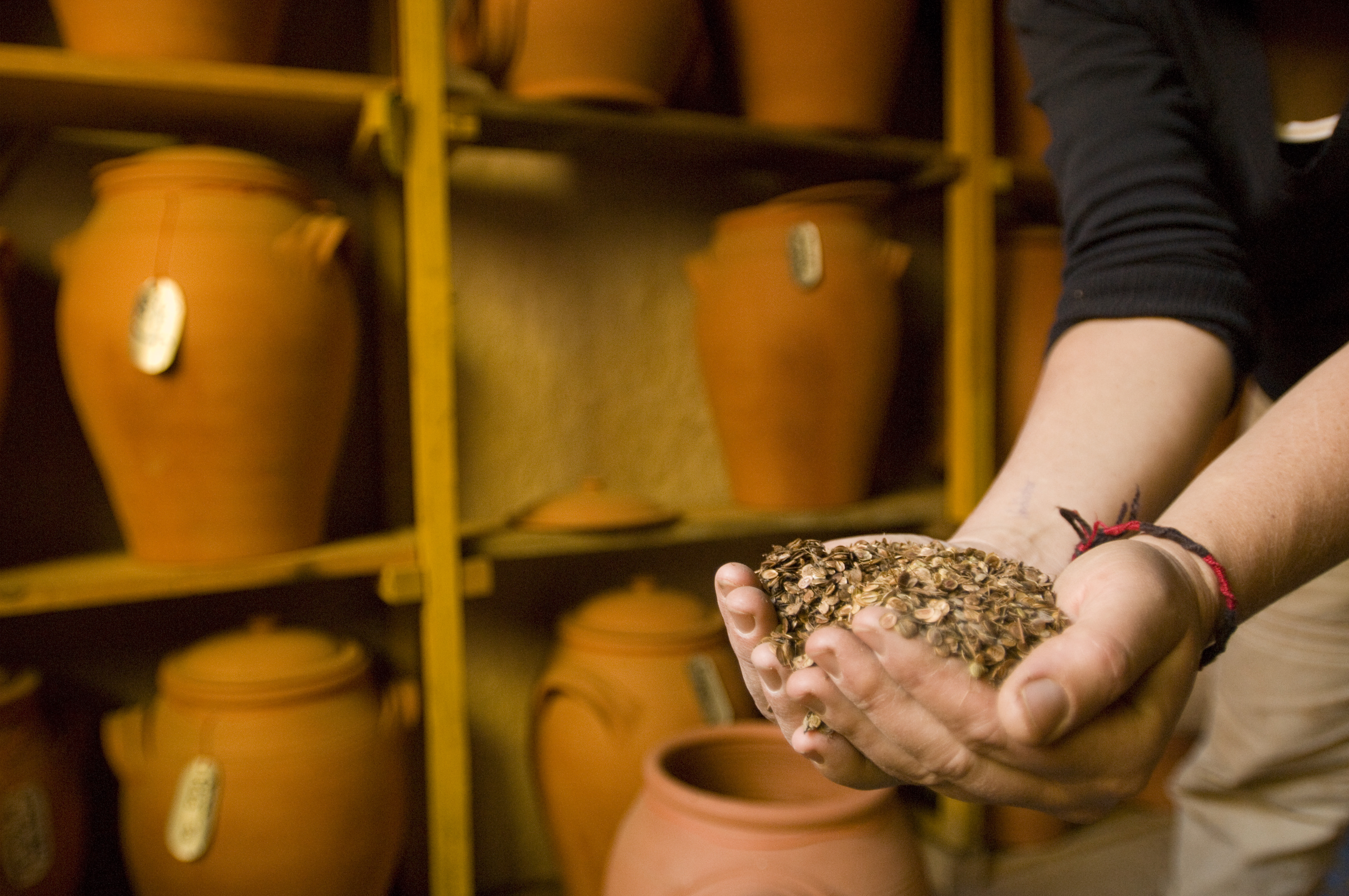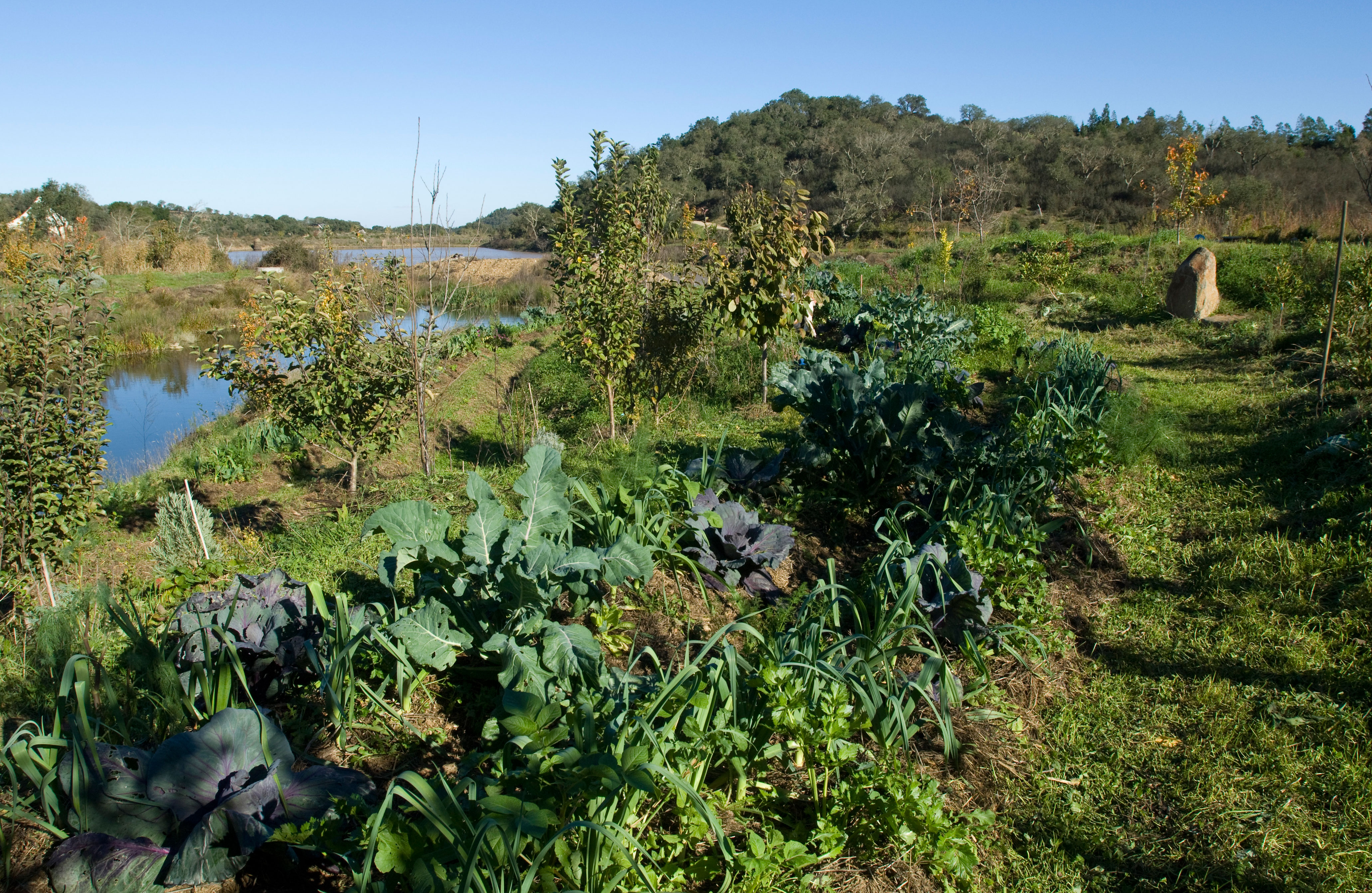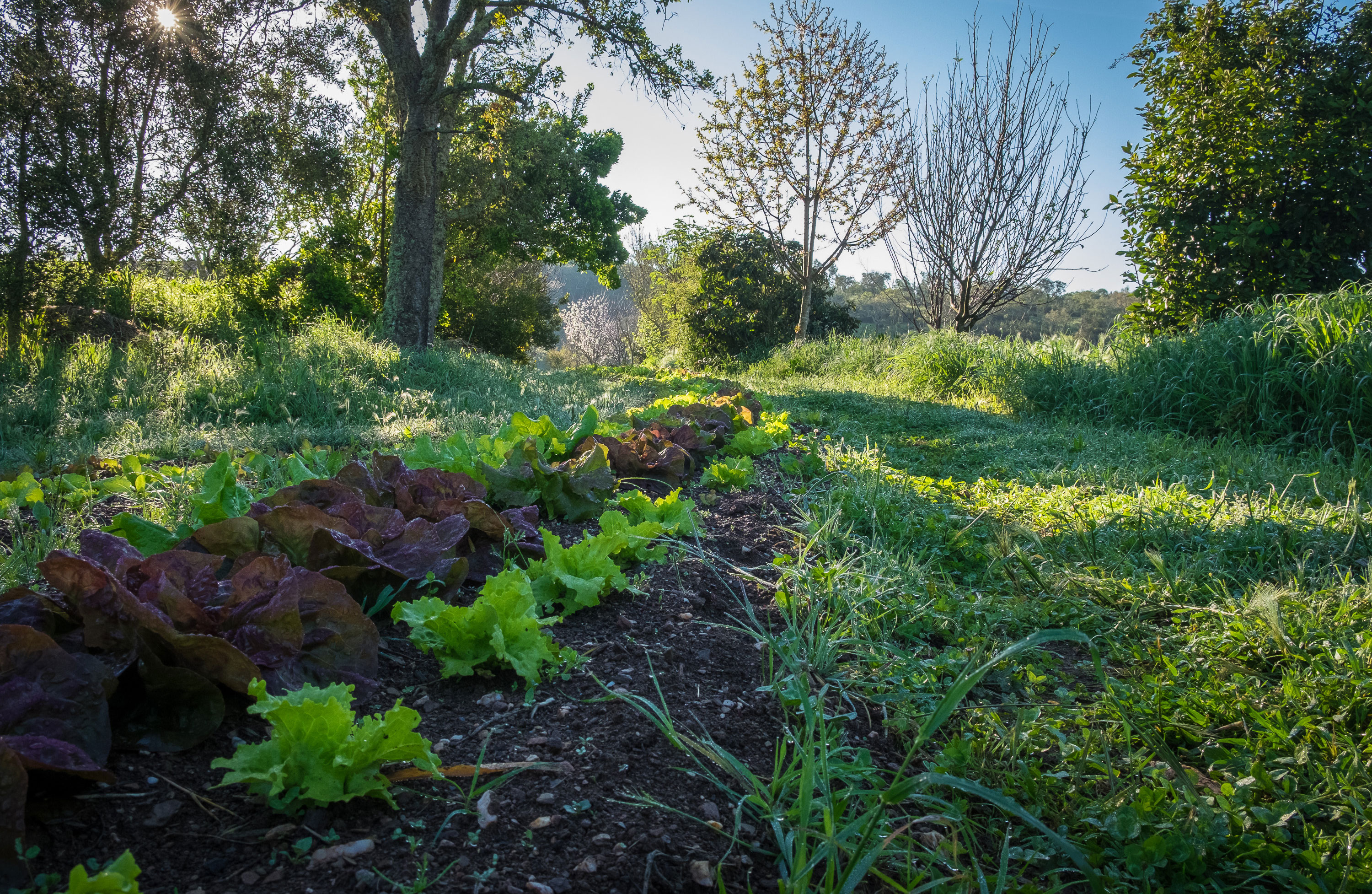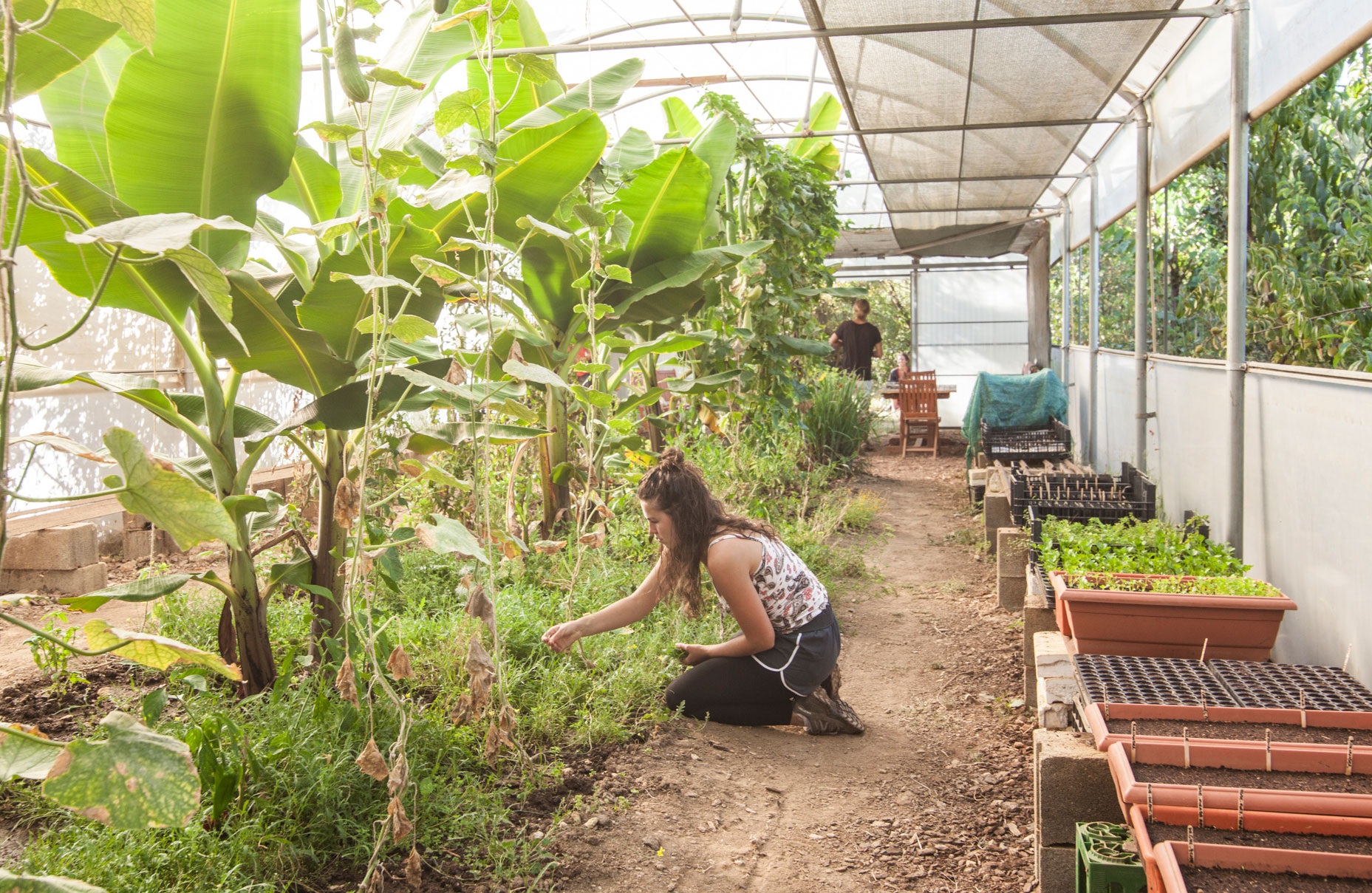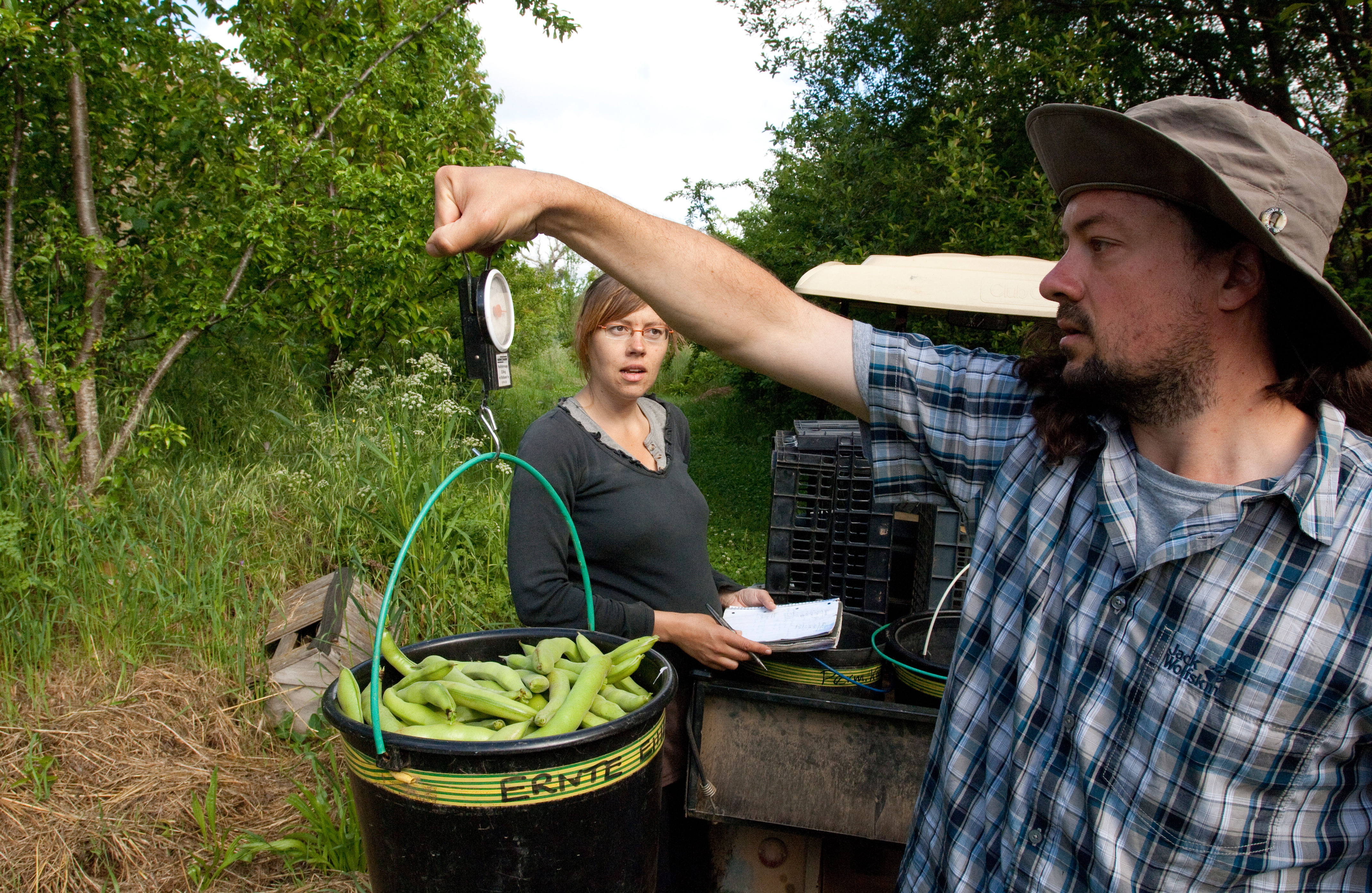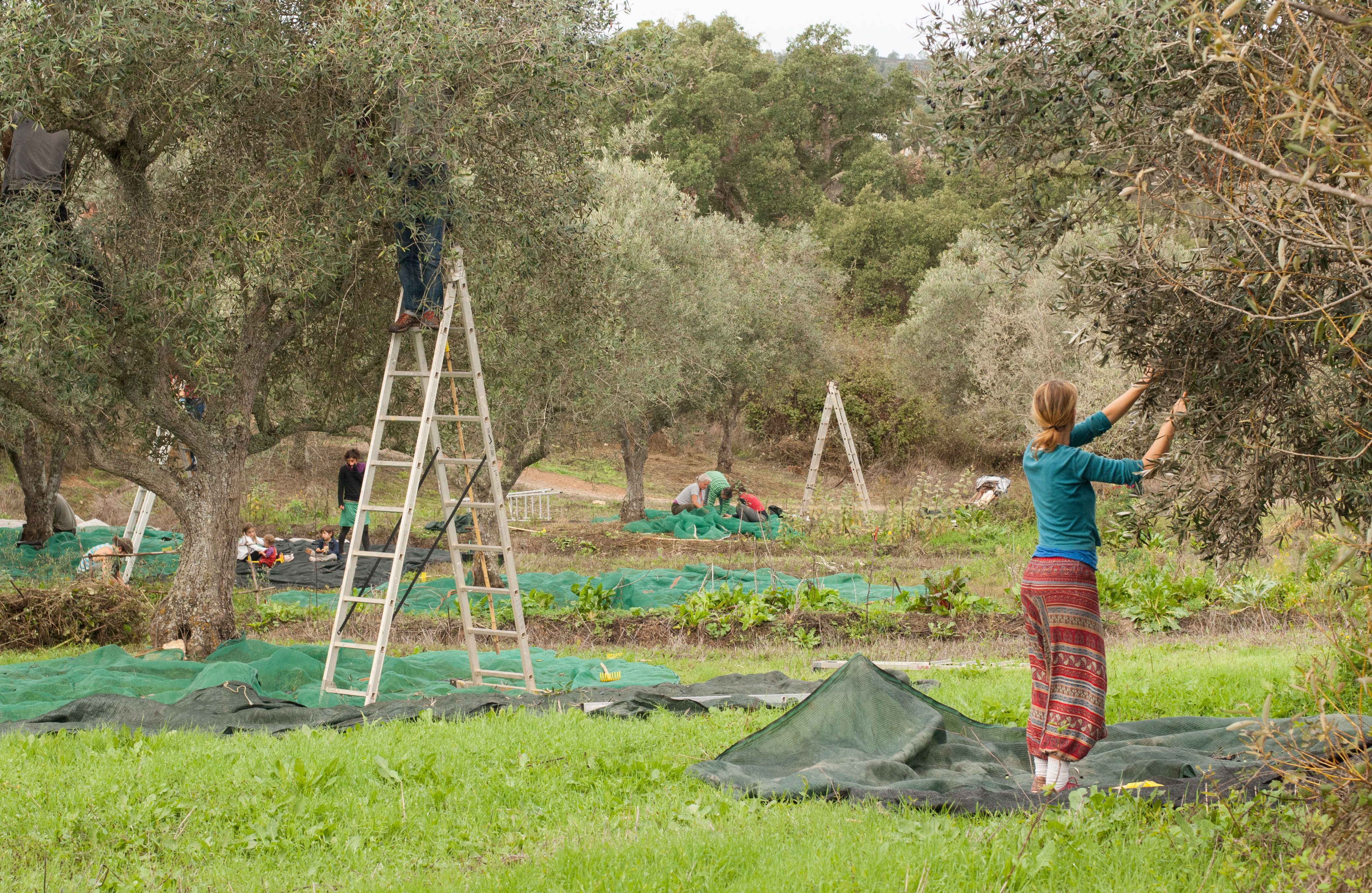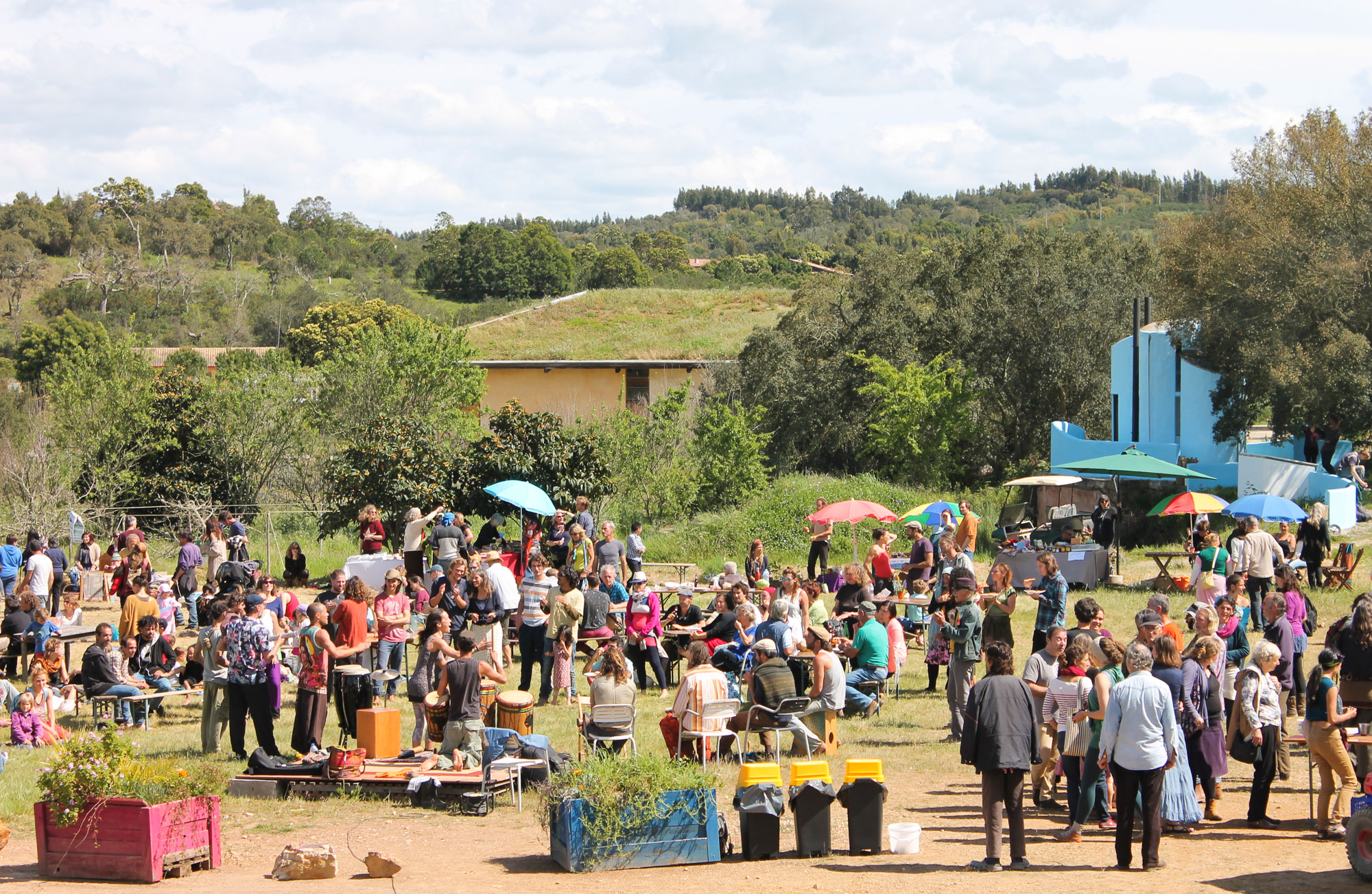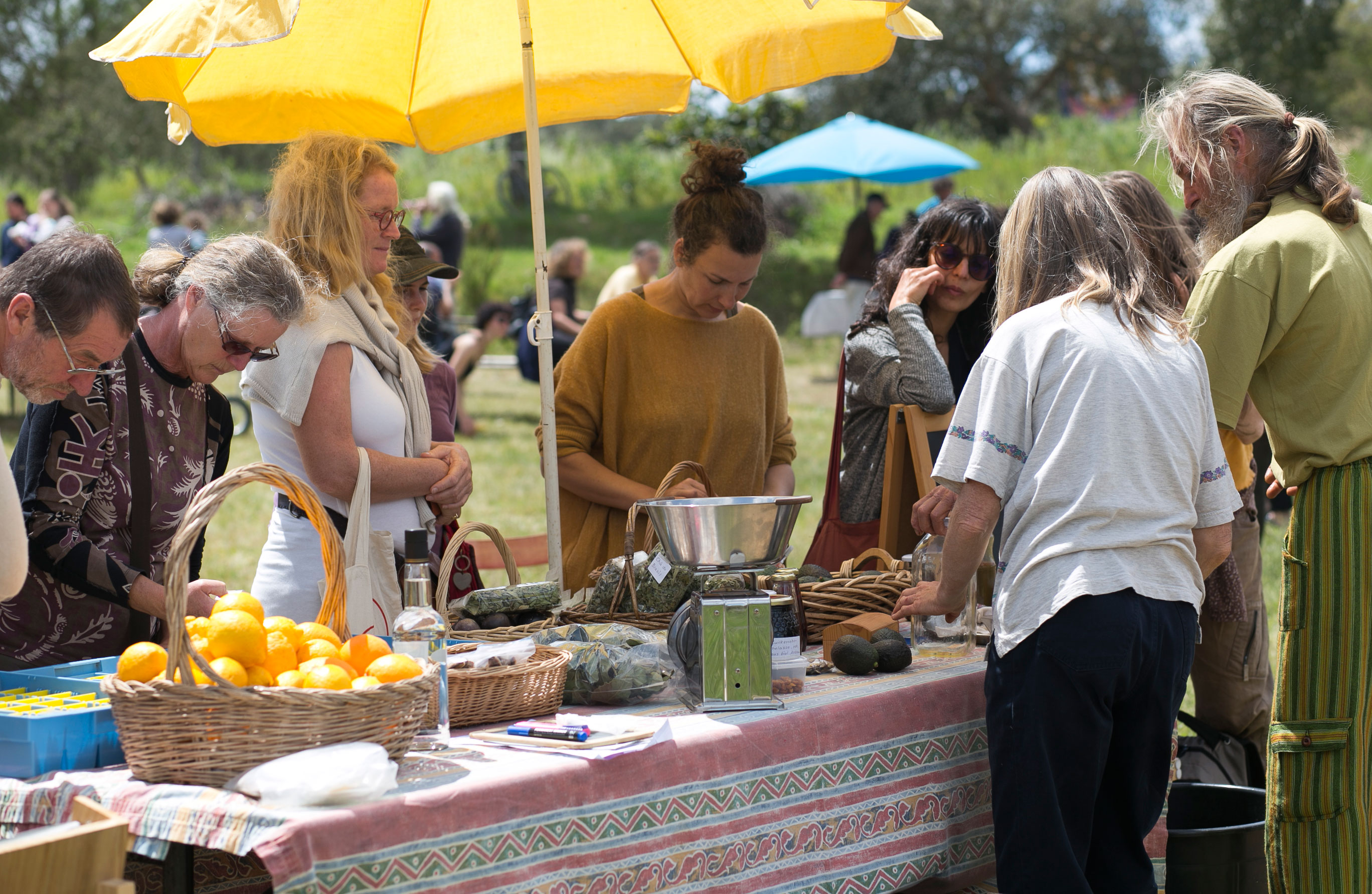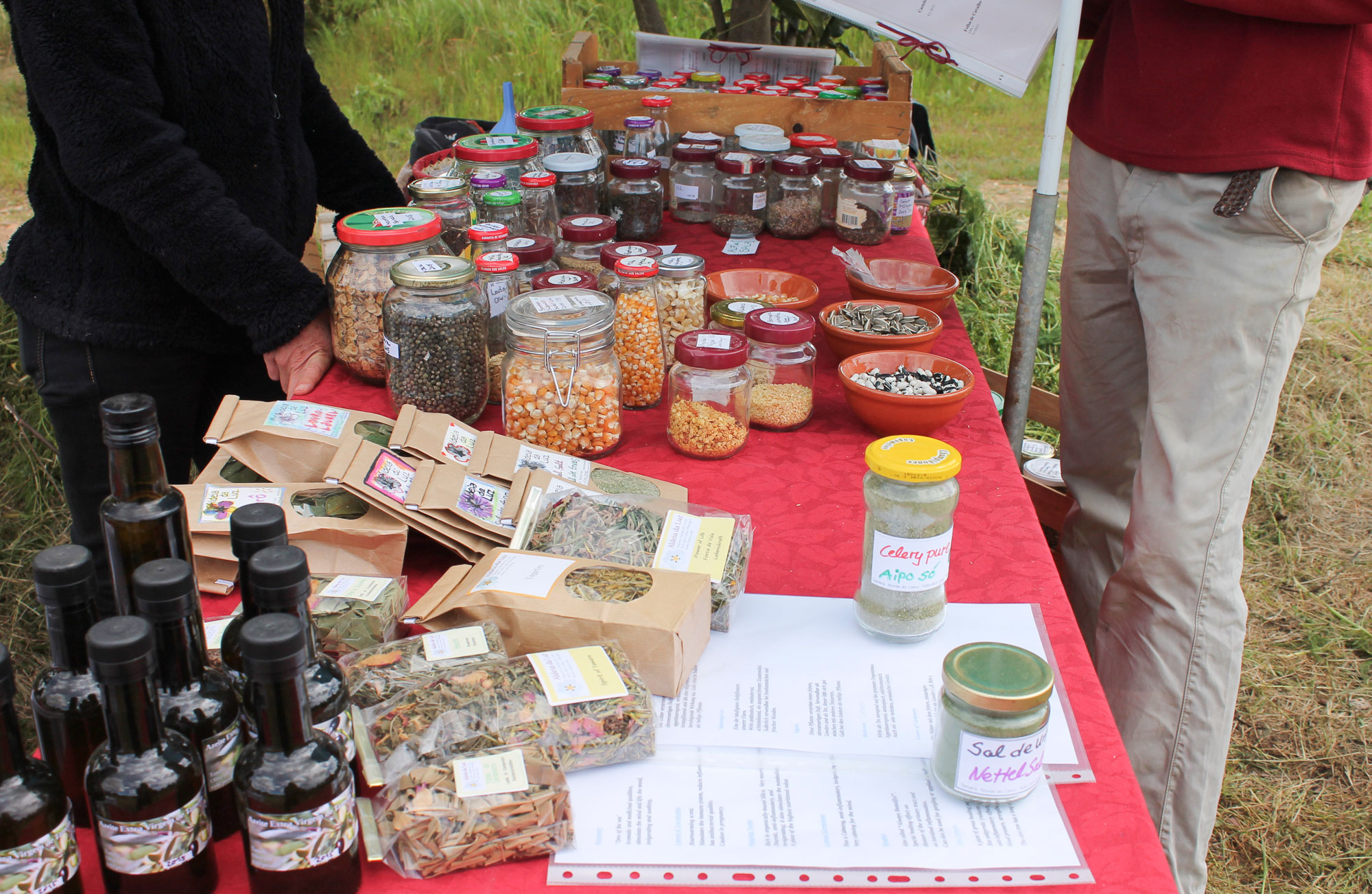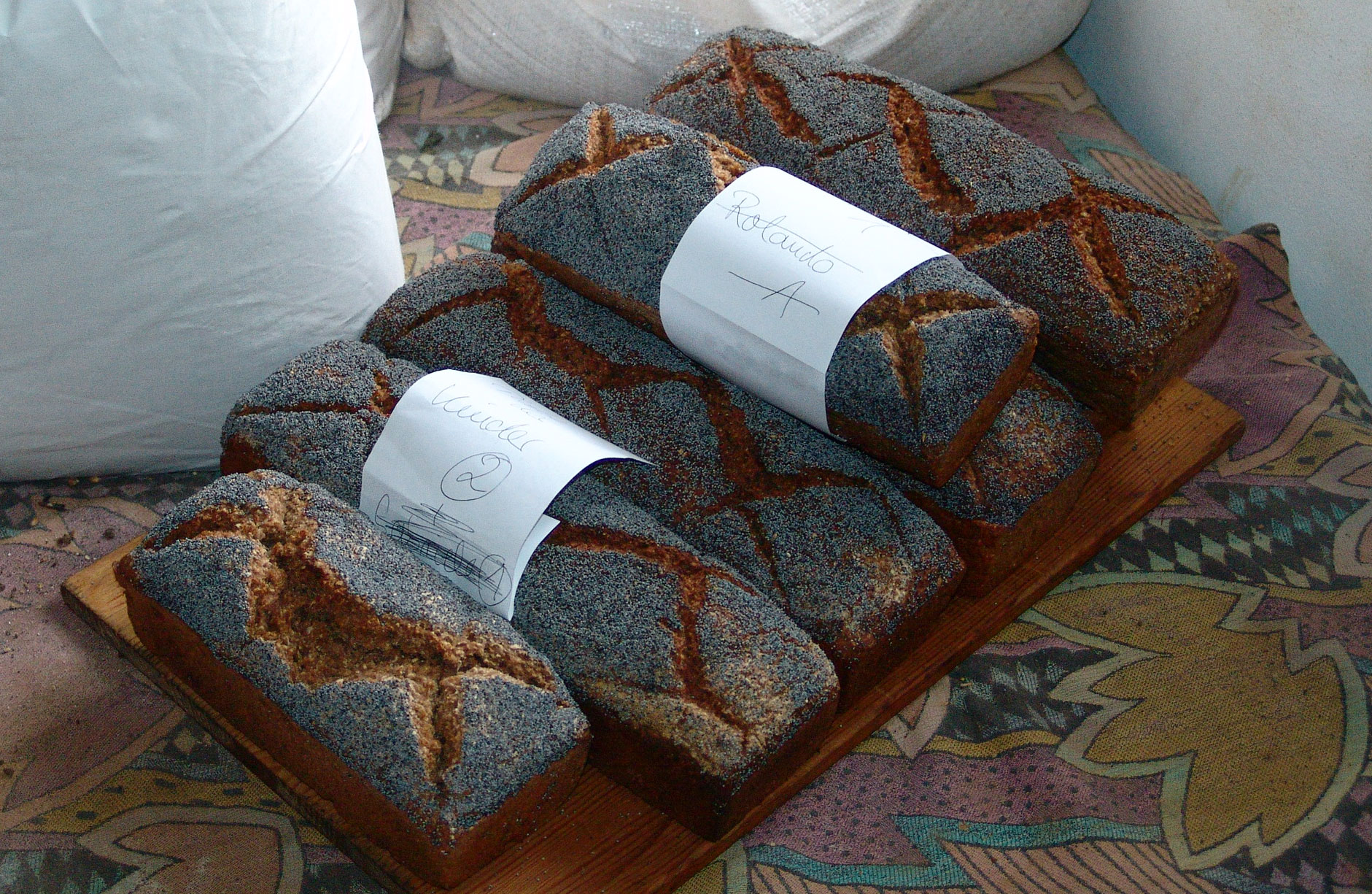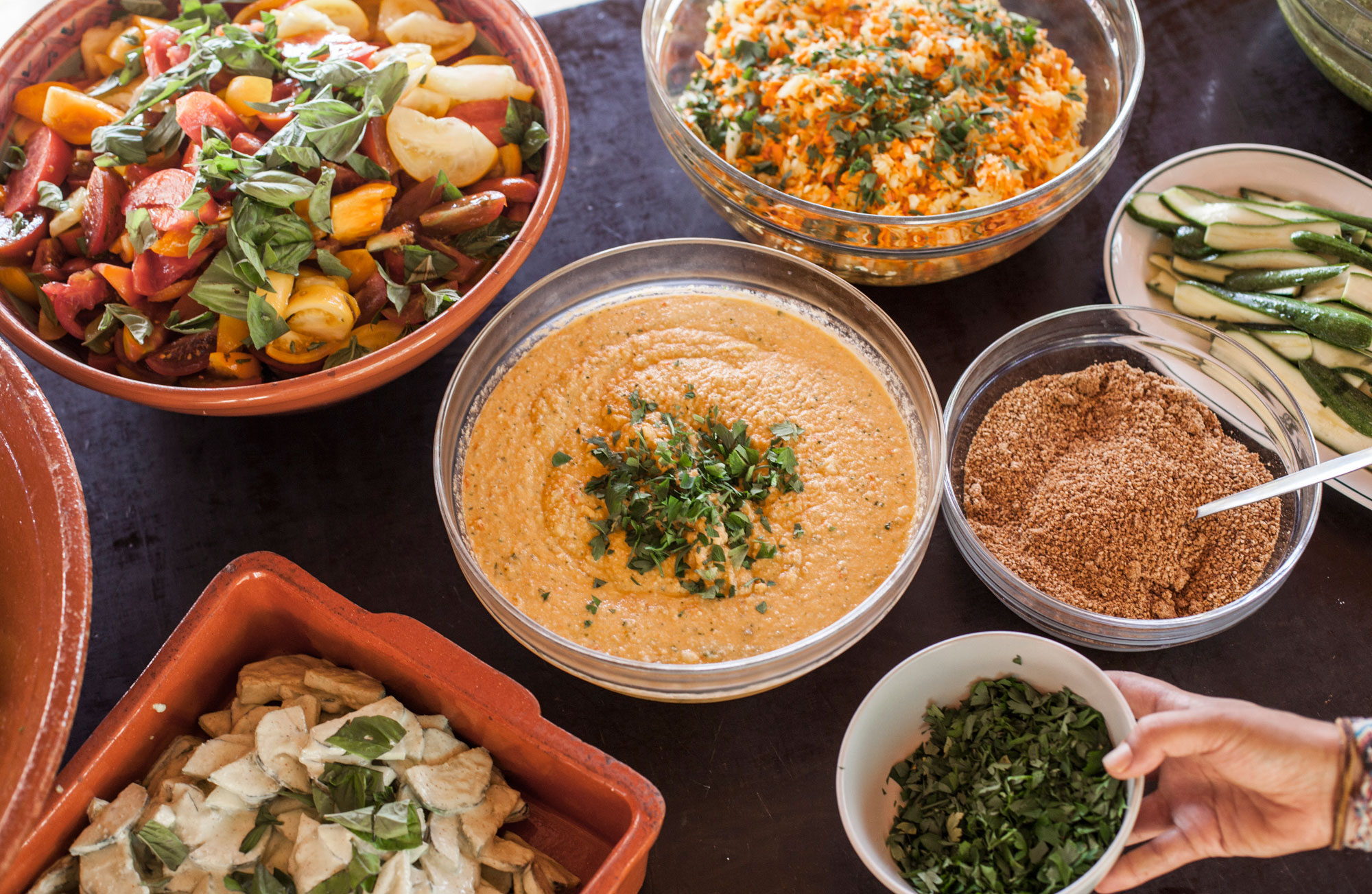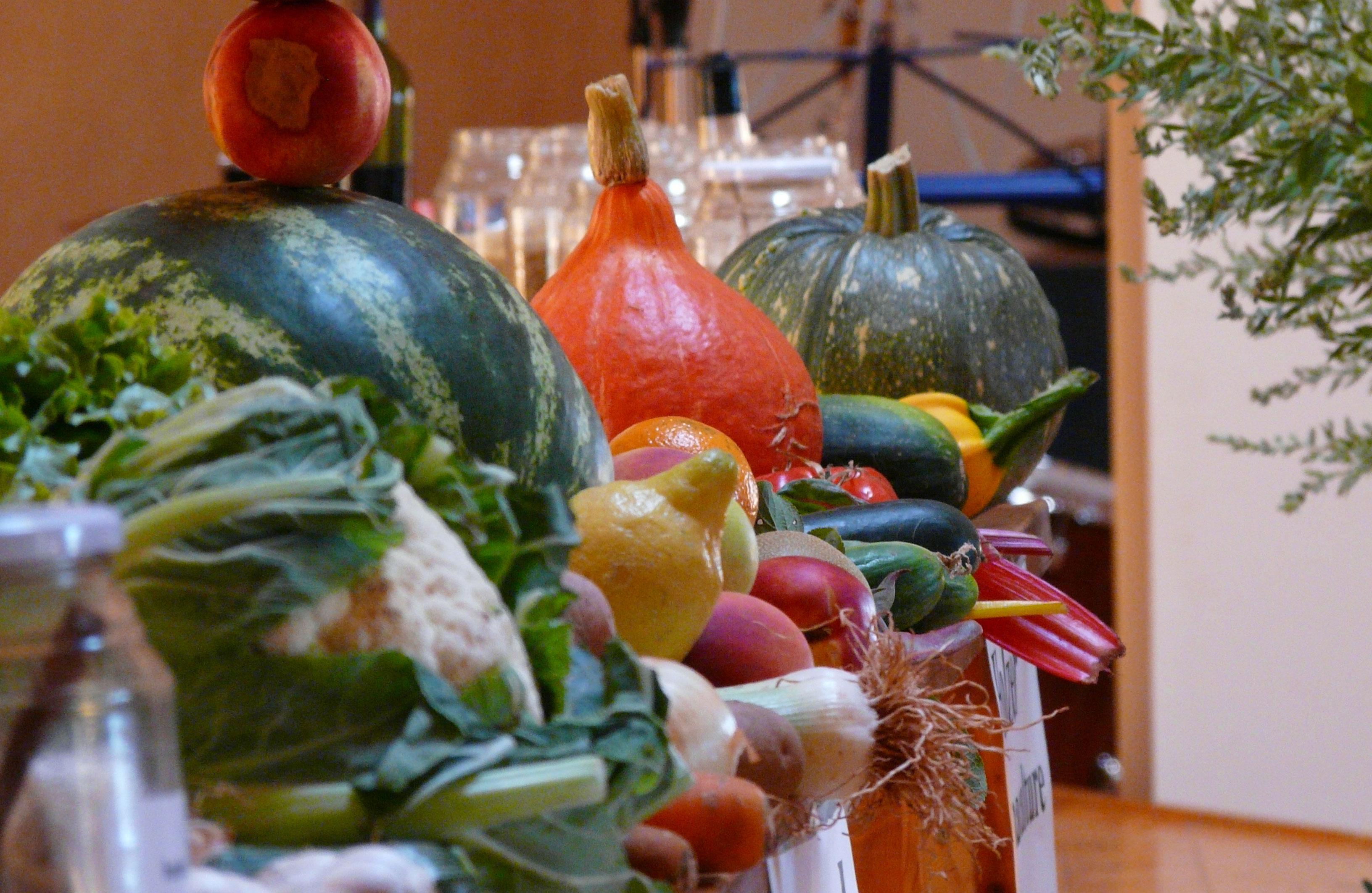Food Sovereignty
Following principles of ecosystem restoration, we’re working towards regional food sovereignty. Since 2008, we’ve expanded our organic vegetable and fruit gardens in Tamera. Seed saving is a key part of this. We’re now increasingly focusing on collaborating with local partners towards regional food sovereignty. By developing practical knowledge about how to grow food, we want to show how communities and regions across the globe can step out of complicity in a criminal food industry and the politics of globalization. We cooperate with nature and all beings, acknowledging that the Earth provides abundance, and always leaving some of our harvest for the creatures who live with us on the land.
“Though the problems of the world are increasingly complex, the solutions remain embarrassingly simple. (…) We are only truly secure when we can look out our kitchen window, see our food growing and our friends working nearby.”
BILL MOLLISON
Vision
Our Global Campus partner Philip Munyasia of OTEPIC, Kenya put into words our vision for food sovereignty:
“Come together locally, cultivate abundance, grow your own food without chemicals, share and exchange with your neighbors, generate income with the surplus, save the seeds, recycle your waste and make compost, learn to treat water as a living being, cook with solar energy (or biogas), plant trees, build sustainable models and join the global food revolution.”
Using natural farming techniques, we want to achieve regional food sovereignty. We’re developing a network with neighbors, organic farms and small-scale producers in the Alentejo region. We aim towards a cooperative in which many people from the region can participate in the local food cycles again. After a gathering of communities in April 2016, we created the Regional Autonomy of Southern Portugal Map of more than 100 local initiatives of communities, food producers, healers and social activists. It shows each projects’ resources and needs (mainly for food supply) and also what they offer to share, like machinery, trucks, kitchen and storage. The longer term plan is to develop this model into a center to continue to share goods and services, and also for mutual education and support, food processing and cultural events.
Seed Saving
Saving seeds – seed sovereignty – is a highly political issue of our times, and a matter of survival for us as humans and the Earth. We know that those controlling the seeds control our food chain. We work towards regaining control and increasing the diversity of our crops by running our own seed bank and seed garden and by cooperating in local seed exchanges. Decentralized seed sovereignty is a crucial part of regional autonomy, and of building a peace culture of independent people.
Aquatic Life
Building ponds according to Water Retention Landscape design could provide answers to the issues of nutrition and the disastrous overfishing of the oceans. Many different fish, crabs and other aquatic animals are nowadays living in the various retention reservoirs we’ve built. The formation of deep and shallow zones and rich vegetation at the shores provides them with protected areas for spawning and feeding. The wealth of these aquatic habitats attracts a lot of wildlife such as otters, cormorants and storks. In Terra Deva, we’re trying to find out whether eating fish can be part of a nonviolent culture.
Results
Farming and Food Processing in Tamera
- Since 2007, we’ve created several hectares of terraced farmland for vegetable and fruit growth, following the construction of rainwater retention spaces through:
- field cultivation in our south valley with the use of a tractor,
- garden-sized cultivation on the terraces of Lake 1, on 3000m² of sloping land and 1000m² of flat growing area,
- urban permaculture gardening in our Solar Test Field.
- We maintain the olive grove that we inherited with approximately 350 olive trees, yielding on average 4 tons of olives annually.
- Using solar technology, we produce, preserve and store herbs, teas, jams, dried fruit, vinegar, oil, canned tomatoes and many more products in our processing kitchen.
Regional Autonomy
- We regularly organize regional markets in which local producers and consumers gather to exchange goods, fostering local production and economic exchange.
Seed Saving
- We have 2 organic seed gardens and a house for the drying, processing and storage of seeds.
- To maintain diversity, we participate in local seed exchanges.
We teach how to cultivate, harvest, clean and store seeds in our Seed Harvest Camp.
